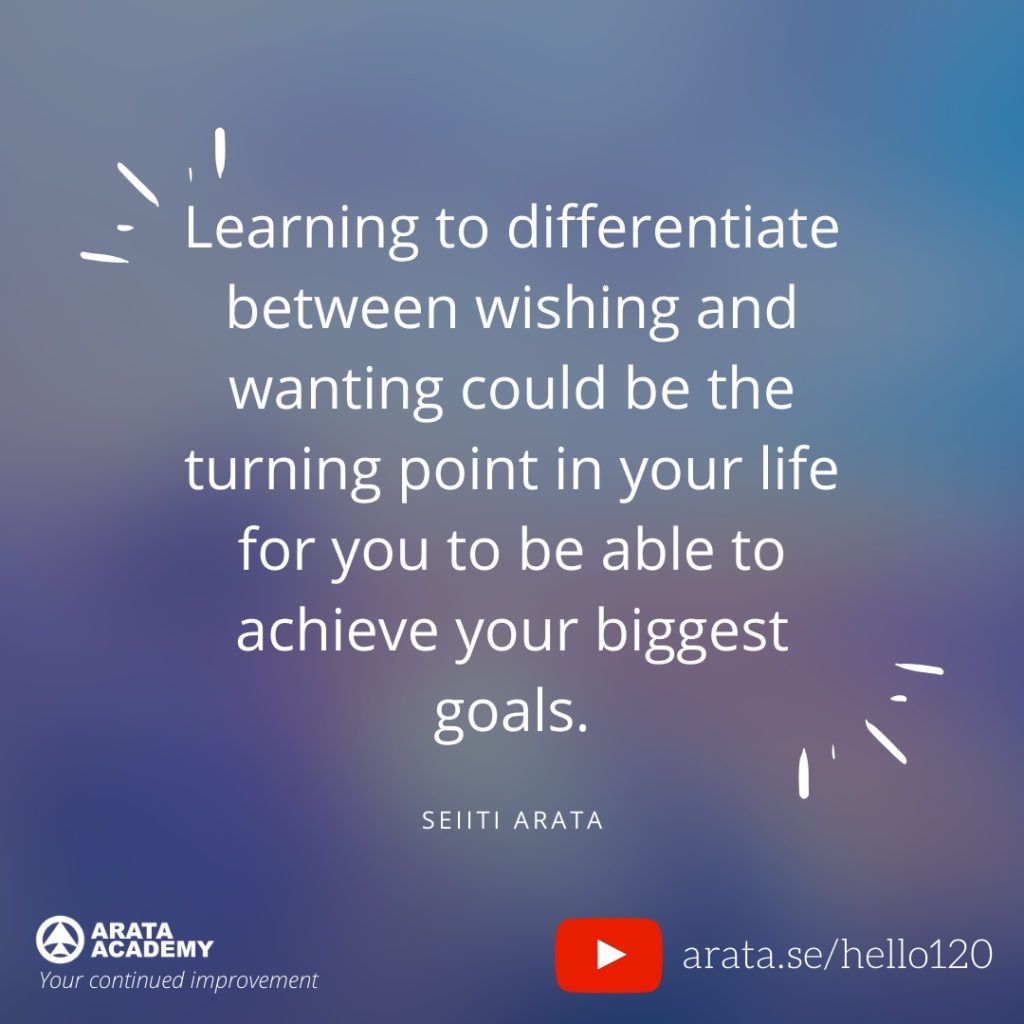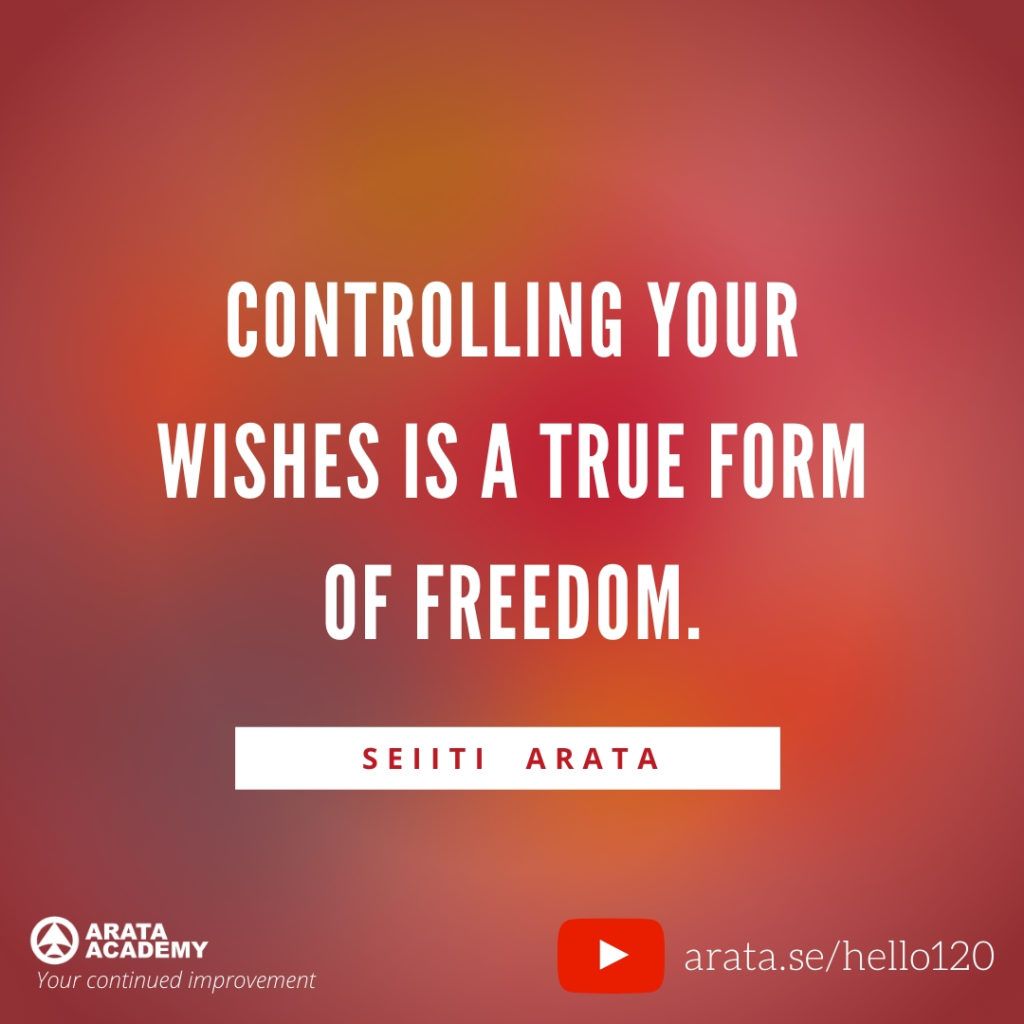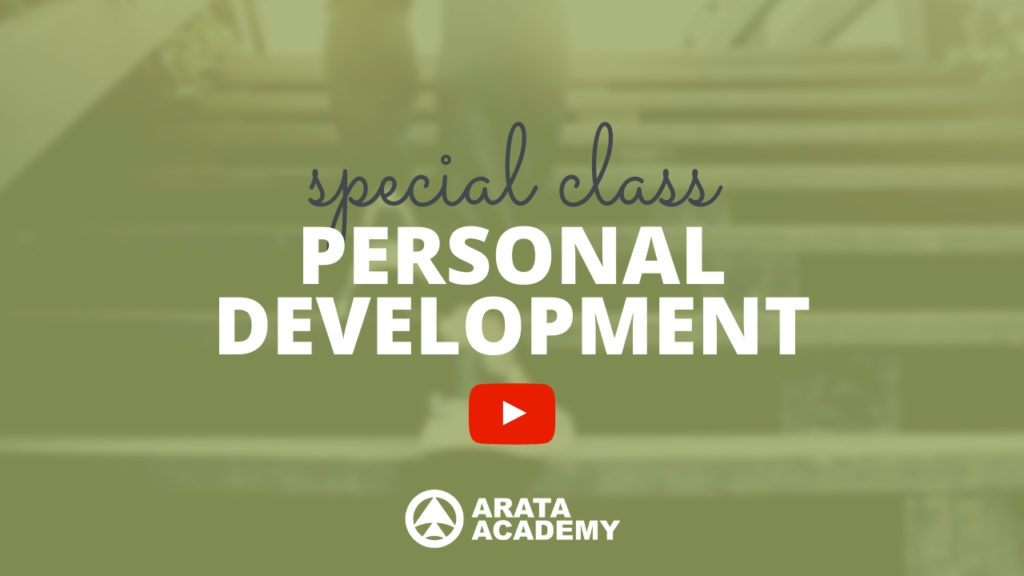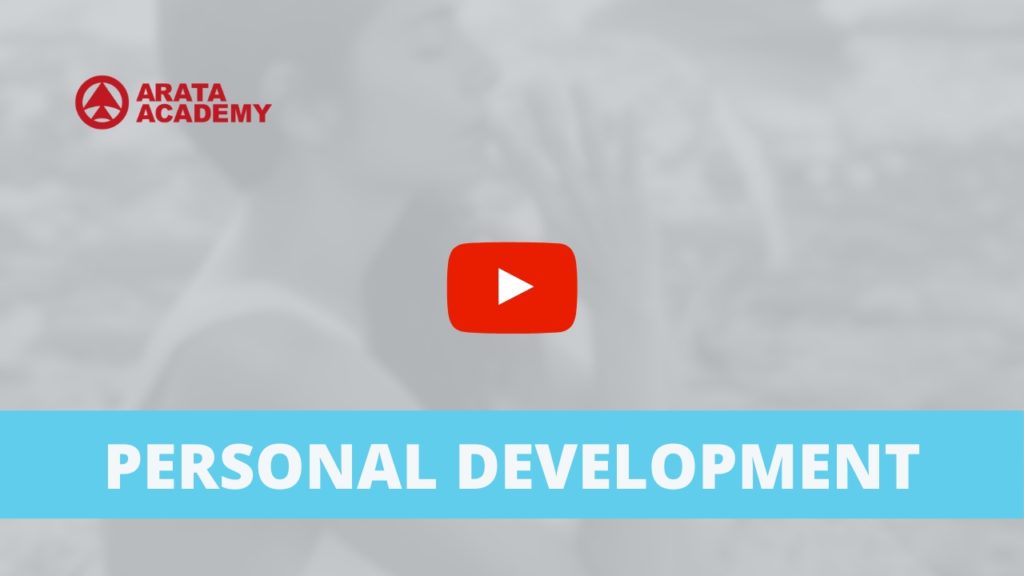Hello! Seiiti Arata. Do you know what is the difference between wishing and wanting?
At first, these words seem to be the same. However, there is a subtle difference that will help you achieve some of your most difficult life goals.
To illustrate the difference, let me give you an example. Imagine that I’m a chocoholic and I have nut allergy. Someone offers me a delicious chocolate bar that has peanuts in it.
Seeing that chocolate awakens my desire. Just seeing and smelling the chocolate makes my mouth water. But deep down, I don’t want to suffer the consequences of eating something with nuts in it, because I know that I’ll have an allergic reaction.
What does it mean to wish for something, rather than want it?
So instead of complaining that I can’t eat chocolate because of my allergy, I simply say that I’d rather not eat it.
This isn’t a wordplay. I’m not simply exchanging the “I can’t it” with a “I don’t want it”. I am reinforcing my personal values, strengthening my intentions and training my resistance.
Aldous Huxley said that “Words form the thread on which we string our experiences.”. Why is it important to establish this subtle difference between wishing and wanting? Because we’re making ourselves aware of the distinction between desire for impulse and rational will.
Impulsive desire is an obstacle that exists between you and an object that is considered a source of satisfaction. For a chocoholic, chocolate is a real source of satisfaction. Desire is what separates the chocolate lover and the source of their satisfaction. If you eat it, the desire is fulfilled. That’s why it’s said that possession kills desire.

In the example given, as much as I enjoy chocolate, my health is one of my highest personal values. I intend to protect my health, despite the temptations of everyday life.
So when I come across a chocolate bar that’s filled with peanuts, regardless of how much I’m craving it, I resist. And I resist because I know that, deep down, what I want most is to preserve my personal values, among them my health.
If I were an irrational animal, or if I didn’t respect my values, I would have eaten the nutty chocolate, even knowing the allergic reaction that the nuts would cause.
However, since I am an intelligent creature and able to understand the consequences of my choices, I evaluate whether I really want to rationally eat chocolate and take the consequences of the allergy.
It is very obvious to me that now, using my reasoning, ultimately, I don’t want to eat the chocolate bar. When someone says to me, “Do you want this nutty chocolate bar?”, my inner rational voice says NO. I don’t want it. I wish I could have it, but I don’t want to.
Understanding all this, it was easy to swap from the frustrating mindset of “I can’t” to a genuine, enlightened and wise “I don’t want”.
This choice of words seems subtle, but it could be the difference between exchanging a life of frustration and an existence based on choices that lead me to my great goals. Towards goals that are aligned with my highest personal values.
When I say “I can’t,” I’m feeling sorry for myself. I may be wanting other people to feel sorry for me too, as a way to get attention.
When I say “I don’t want” or “I’d rather not”, I show how I have the determination to overcome impulsive desires.
Make conscious decisions based on what you really want
The most important point of our conversation is the inner peace you can achieve by investing in conscious decision-making. In order to decide consciously, we must balance the satisfaction of desires with the probable consequences.
The life of those who don’t have this conscious decision making can quickly turn into a troubled life. Without a balance between wishing and wanting, it’s easy to make wrong, incoherent decisions.
This imbalance leads to suffering. It’s like a car that had one of the broken axes so it just goes around in circles, never reaching its final destination.
The cause of the imbalance isn’t the desire itself. It’s normal to have desires and we don’t need to suppress desire. It’s even healthy to have desires in a positive way, because this means that we have aspirations that serve as a compass for the future of our life. A quiet life allows us to recognise our desires and understand our choices.
The problem is when we always give in to our desires, without thinking about the consequences. It’s when we cultivate desire all the time. We feel that all desire must be satisfied. Not knowing how to control one’s desires is a kind of weakness of character. That’s why many philosophical and spiritual practices suggest living a reserved and deprived life. This is how we cultivate our ability to overcome inadequate desires.

I’m not suggesting that you should have a life of deprivation, or that you should repress your desires. It’s normal to have desires. What your personal development will do is raise your power of conscious decision-making. You could even go so far as to say that despite wanting something, you chose not to give into it. This is to free oneself from the prison of desire, from being a slave to one’s own desires.
Don’t try to eliminate your desires. Use your desires constructively, as a tool. They are a necessary motivation for life. Just let go of being in a state of always wanting something more than what you have. This will allow you to live in the present moment and achieve the life you want to have.
There’s always a choice
You’re not required to do anything you don’t really want to, except in the rare situation where someone forces you to do something in a life-or-death situation.
If you believe that you should do something you don’t want to do, you end up creating a fantasy in your head. A story of scarcity that you’ve repeated to yourself so many times, that you’ve started to just accept it as the truth.
The same goes for the opposite, when you believe that you can’t do a certain thing. By saying “I can’t do it,” you’re directing your focus of attention to scarcity rather than focusing on abundance.

Let me give you some examples to help you understand. For example, you may have created a “I need to wake up early” story. You don’t have to wake up early. You choose to wake up early. Do you see the difference?
In this story, the one in which you tell yourself that you must do something, you start to see yourself as a vulnerable, incapable victim, with no ability to choose.
The victim has no choice because they’re being coerced into doing what others are telling them to do. Consequently, the victim isn’t responsible for the outcome of their actions. They don’t get to choose what they do.
Therefore, it’s very easy for the victim to complain, because the life they have isn’t a result of their choices.
What we want is exactly the opposite. You need to understand that you’re in control of your own life. You have the power to put on paper what you really want for your future. You can start making conscious decisions today to make those goals a reality.
Once you’ve realised this, you will know how to make the wisest and most rational choice, regardless of any obstacles you might encounter in your life.
When you understand that you’re the creator of your own story, you take more responsibility for your results and understand the importance of making better choices, and of making decisions based on what you really want, and not just your impulsive desires.
The myth of the system that forces us to do what we don’t want to
Whenever someone says that you don’t have to do something you don’t want to, the first thing we do is act reactively.
One of the first thoughts that comes to mind is that “the system” forces us to do lots of things that we don’t want to.
We’re supposed to work in a job that we don’t like just to pay the bills at the end of the month. We’re forced to deal with unpleasant people. We’re even forced to act against our values because of external pressures.
I know that’s how we were taught to think, but the truth is that it’s all a myth. One more story of scarcity that you have heard so many times that you’ve come to interpret it as truth.
The good news is that you can replace this myth with a story of abundance. You can unlearn these misleading lessons and start telling yourself a story where your actions are based on what you really want, and not on what society expects from you.
Let’s imagine that you sincerely hate your job, your rude boss or your gossiping coworkers. Are you forced to work in this job? No.
You’re free to quit whenever you want. You have the choice of being unemployed. Or get a job elsewhere. Or start your own business in parallel to your job until you feel safe enough to resign.

In any case, it’s your choice to continue in your current job. You don’t have to work. You’re choosing to work and to stay in your current job.
On the day that the nuisance, whether with the job itself, the friction between you and your boss, or the disappointment with your co-workers … on the day that this nuisance becomes unbearable, it will be your choice to resign and move on to new horizons.
Not everything is your choice, obviously. Perhaps in this scenario, even if you’re a good employee, the company may have financial difficulties and your boss will fire you, along with several other people. Maybe your gossiping co-workers create some story to sabotage you and you get fired unfairly.
All these are natural events of life, of which you have little or no control. Life is like this, and if you learn to live in the present moment and see things as they are, you will be free from the false wish that, if everything were different, you would be happier.
Today we spoke about the subtle difference between what you impulsively wanting something and what you really want for your life.
There are four lessons on this that I highly value. The first lesson is to understand the consequences of our choices. If you’re not aware of the consequences of your choices, your life will hardly find a balance to help you reach your highest goals.
The second lesson is that we shouldn’t be prisoners of our desires. On the other hand, we shouldn’t ignore our desires either. We should use desires as a positive motivation tool.
The third lesson is that the best way of not being a slave to one’s own desires is to change perspective. By shifting from a perspective of scarcity to a perspective of abundance, we realise that we have different kinds of choice. Each choice has different consequences. It’s making the choices that increase our willingness and control our desire. We can honestly say “I wish for it, but I don’t want it”.
Finally, the fourth lesson is that the only way to replace impulsive decisions with conscious choices is to invest in your own personal development. You should seek to study, to plan and mainly observe your mistakes and put yourself in control of your own life.
To begin with, I suggest you spend the next week paying attention to your language. Instead of saying you can’t do something, explain what it is you really want to do. Remember that there is always a choice and that you’re not required to do anything you really don’t want to.
Incidentally, if what you really want is to develop further as a person, visit https://arata.se/personaldevelopment to unlock a special lesson on how to achieve improvements in your life, starting with yourself.

